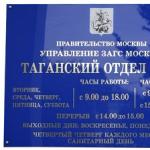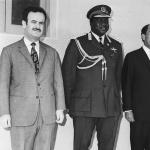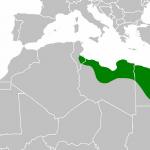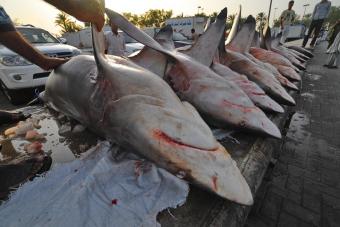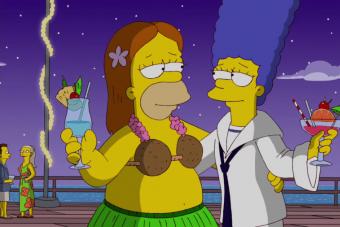slide 1
Description of the slide:
slide 2
Description of the slide:
slide 3
Description of the slide:
slide 4
Description of the slide:
Born on October 1, 1968 in the town of Osinniki, Kemerovo Region. Born on October 1, 1968 in the town of Osinniki, Kemerovo Region. In 1985 he graduated from secondary school No. 31 and entered the KuzPI (Kuzbass Polytechnic Institute) in Kemerovo, specialty - "Development of coal deposits by underground method", Faculty of Mining. In 1987 - 1989 - military service. Strategic Missile Forces (Strategic Missile Forces), Uzhur, Krasnoyarsk Territory. He retired with the rank of sergeant.
slide 5
Description of the slide:
slide 6
Description of the slide:
While studying at the Novokuznetsk boarding school for the disabled, he became professionally involved in wheelchair sports. While studying at the Novokuznetsk boarding school for the disabled, he became professionally involved in wheelchair sports. He took part in all 6 Parasibiriadas and was always among the winners and prize-winners. In 1999, for the first time, he took part in the Russian table tennis championship among the disabled, and immediately joined the Russian team. Repeated Champion and prize-winner of the championships of Russia, international rating tournaments, participant of the World and European Championships. Going in for disabled sports, he began to cooperate with the newspaper "Invalid", write information reports from various competitions and essays from Russian and international tournaments. Sports columnist for the regional newspaper "Invalid". Takes an active part in the organization and promotion of wheelchair sports in the Kemerovo region.
Slide 7
Description of the slide:
Held 9 championships of the Kemerovo region in table tennis among the disabled, all in the city of Osinniki. Held 9 championships of the Kemerovo region in table tennis among the disabled, all in the city of Osinniki. Participated in motor races dedicated to the work of the newspaper "Invalid" and the promotion of wheelchair sports: Novokuznetsk - Leninsk Kuznetsk - Kemerovo Novokuznetsk - Kemerovo - Anzhero Sudzhensk - Mariinsk - Tyazhin Novokuznetsk - Tashtagol - Mezhdurechensk Trainer - Slabotchukov Maxim Leonidovich.
Slide 8
Description of the slide:
In 2001 he was awarded the title of Master of Sports of Russia. In 2002 he was chosen as "Person of the Year" in Osinniki in the sports category. In 2006 he was admitted to the Union of Journalists of Russia. 2005 - 2007 Graduated from the Osinnikovsky Mining and Technical College with a degree in State and Municipal Administration. Since 2007, he has been working at the Sports School for Freestyle Wrestling named after A. G. Smolyaninov as an instructor. In 2001 he was awarded the title of Master of Sports of Russia. In 2002 he was chosen as "Person of the Year" in Osinniki in the sports category. In 2006 he was admitted to the Union of Journalists of Russia. 2005 - 2007 Graduated from the Osinnikovsky Mining and Technical College with a degree in State and Municipal Administration. Since 2007, he has been working at the Sports School for Freestyle Wrestling named after A. G. Smolyaninov as an instructor. Participant of the Paralympic Games in Beijing 2008. On November 6, 2009 he was awarded the title of Master of Sports of International Class.
Slide 9
Description of the slide:
In 2008 he was awarded the medal "For Honor and Courage". In 2009 he was awarded the medal "For a special contribution to the development of Kuzbass" 3rd degree. In 2010 he became the World Table Tennis Champion. In 2010 he was awarded the badge of honor "Sports prowess of Kuzbass". In 2011 he was awarded the Jubilee medal "15 years of the Kemerovo and Novokuznetsk Eparchy". In 2011 he was awarded the title of Honored Master of Sports of Russia. In 2011 he was awarded the Order of Valor of Kuzbass. In 2008 he was awarded the medal "For Honor and Courage". In 2009 he was awarded the medal "For a special contribution to the development of Kuzbass" 3rd degree. In 2010 he became the World Table Tennis Champion. In 2010 he was awarded the badge of honor "Sports prowess of Kuzbass". In 2011 he was awarded the Jubilee medal "15 years of the Kemerovo and Novokuznetsk Eparchy". In 2011 he was awarded the title of Honored Master of Sports of Russia. In 2011 he was awarded the Order of Valor of Kuzbass.
Slide 10
Description of the slide:
slide 11

Ivan Poddubny Full version of the biography. Ivan Maksimovich Poddubny was born on October 9 (September 26), 1871 in the Poltava region, in the village. Krasenivka (now Cherkasy region). In the year of the resumption of the Olympic Games, in 1896, he first entered the circus arena. According to the subtle observation of the doctor E. Garnich-Garnitsky, who, together with A. Kuprin, created a club of athletes in Kiev, where the future “champion of champions” trained at one time, “Poddubny was able to develop energy like an explosion at the right moments and not lose his “courage “in the most difficult and dangerous moments of the struggle ...” At the same time, Poddubny was artistic and knew how to please the public. By 1903, he was already an experienced belt wrestler, known to Odessa and Kiev, Tbilisi and Kazan ... BackContents

Ivan Poddubny Circus historians believe that the "golden age" of French wrestling falls on years. It was these years that were illuminated by the brilliance of Poddubny's victories. In 1910, Poddubny said goodbye to the arena and returned to Krasenivka. In the vicinity of neighboring Bogodukhovka, he acquired 120 acres of black soil (more than 131 hectares), got married. A couple of years later, Poddubny went bankrupt. In 1913, the wrestling carpet sprung again under his feet. In 1919, Poddubny was almost shot by drunken anarchists in the Zhytomyr circus. He fled, leaving his things, wandering without money. A little later, in Kerch, a drunken officer shot at him, scratched his shoulder. In Berdyansk, in the same 19th, he had an unpleasant meeting with Makhno ... BackContents

Ivan Poddubny In Civil War, Poddubny did not join either side, did not take up arms, he fought in circuses. Since 1922, Poddubny worked in the Moscow State Circus, then in Petrograd. Somehow he ended up on tour in Rostov-on-Don and met Maria Semyonovna there ... Ivan Maksimovich rejuvenated, persuaded, got married. The New Economic Policy carried it around towns and villages, brought it to Germany, then to the USA. Like Odysseus, he overcame the trials and temptations allotted to him. But Ivan Maksimovich did not think of leaving the wrestling mat, he toured until 1941, until he was seventy. In November 1939, in the Kremlin, he was awarded the Order of the Red Banner of Labor and the title of Honored Artist of the RSFSR for his services "in the development of Soviet sports". After the liberation of Yeysk in 1943, they again toured. Then there was a broken leg and death from a heart attack. BackContents

Valery Borzov Back Contents Full version of the biography. Borzov Valery Filippovich was born on October 20, 1949. “Borzov just overturned all our ideas about talent that is improved through training,” Munich professor Steinbach told reporters after Borzov’s triumph at the XX Olympic Games in Munich. “He developed steadily and systematically: biomechanics, sports medicine and the methodology that we have they can’t connect logically in any way, they were applied by his biologist trainer with amazing expediency. This is a runner with a pulsating thought ... ". He was always led to victories by a thought - an exact calculation, multiplied by an indomitable desire to win, diligence, sports fanaticism.

Valery Borzov "Everything that I have starts from childhood," Antoine de Saint-Exupery once admitted. And for Valery Borzov, childhood became a launching pad for big-time sports. In 1962, at the age of 12, Valery met with an excellent coach Boris Ivanovich Voytas, who recognized the talent of a sprinter in a teenager. It is generally accepted that any victory in sports comes to an athlete who has managed to overcome himself more than once in training. Fortunately, the first coach Valeria Voytas, and later Petrovsky, had other views. They protected the nervous system of their student from overload. The installation was always the same - to run only at the level of fitness. Wojtas and Petrovsky worked for the future and led Borzov to victories. BackContents

Valery Borzov Soon the first successes came. In 1969, at the national championship in Kiev, which became his home, Borzov, in the pouring rain, runs a hundred meters in exactly 10 seconds, confidently ahead of the leader of our sprint of those years, Vyacheslav Sapeya. For the first time Borzov is the champion of the country among adults. XX Olympic Games in Munich. Here Borzov was destined to live out his "finest hour". Before him, no European had managed to win both sprint distances at once - in the 100 and 200 meters. And in the entire modern Olympic history, only two representatives of Europe excelled in the 100 meters and one in the 200 meters.

Lyudmila Turishcheva Full version of the biography. Lyudmila Ivanovna Turishcheva was born in Grozny in October 1952 in the year of the athletes' Olympic debut in Helsinki. From the age of six I went to secondary school. She discovered unique data for gymnastics: flexibility, willpower, diligence and, most importantly, character. With physical growth and the growth of sportsmanship, the friendship between the young gymnast and the future famous coach grew stronger. The coach and student found each other and went through the bumpy and difficult sports road together. BackContents

Lyudmila Turishcheva In 1967, at the age of 15, Luda won the USSR Cup for the first time. Other competitions were held and our compatriot performed stably at them, and the coaching council of the country decides to include the 16-year-old schoolgirl Turishcheva in the USSR Olympic team in Mexico City. It should be noted that in the individual standings in the all-around, our countrywoman took only 24th place. But the points scored by Lyuda in individual exercises were allowed to take first place for the country's women's team, and she legally became the owner of the Olympic gold medal for the team place. After the Olympic Games in Mexico City, the athlete and her coach move to the city of Rostov-on-Don. But until the end of 1972, Lyudmila competed at the Allied scale competitions under the flag of the Dynamo physical culture and sports society in Grozny. BackContents

Lyudmila Turishcheva Sports rise of Lyudmila Ivanovna Turishcheva begins after her return from the XIX Olympic Games. Coach V. Rastorotsky and Lyudmila Turishcheva understood that in order to successfully perform at the next sports forum, the successes achieved are not enough. In 1970, at the World Championships in Ljubljana, Lyudmila took first place. She confirms her superiority in other competitions. The gymnastic tournament of the XX Olympic Games in Munich became the triumph of the Soviet school of gymnastics. Sports have their own concepts, their own reckoning. In the third Montreal Olympics in 1976, our heroine was 24 years old. And she did everything to not only perform as best as possible herself, but also lead her young teammates to victory. BackContents

Yevgeny Kafelnikov Back Contents Full version of the biography. On February 18, 1974, the newborn Sochi resident Zhenya Kafelnikov did not yet suspect what the future held for him. Love for tennis was instilled in Zhenya by his father, who gave little Evgeny to the care of coach V.B. Peschanko. The first training sessions were held, basic techniques were studied, it became clear that Zhenya had a sense of the ball. It was decided to transfer the five-year-old Evgeny to the mentor V.V. Shishkin. They worked together for about 12 years. Already in 1981, Zhenya was included in the Olympic reserve group under the USSR national team. Kafelnikov achieved his first significant success in doubles, twice becoming the European champion in tandem with Andrei Medvedev. In 1989, 1990 he became the owner of the World Cup as part of the USSR national team - with Medvedev, Rybalko and Ogorodov. After a trip to the USA (in autumn 1991), Shishkin and Kafelnikov broke up.

Yevgeny Kafelnikov Anatoly Lepeshin became Zhenya's new coach. The mentor initially did not believe in Evgeny, considering the young athlete no different from the others, although even then, having forgotten about the initial disagreements, Lepeshin and Kafelnikov worked together. The coach turned out to be a strong psychologist, a strong-willed person. And who knows, Zhenya would have achieved such success if at that moment another person had trained him. And the successes were really amazing: victories in the professional tour, winning the Grand Slam tournament - Roland Garros, both in singles and in doubles. However, in 1998, Lepeshin and Kafelnikov parted ways. Since 1999, the best Russian tennis player has been coached by Larry Stefanki, a very famous coach who gave impetus to a potentially unfinished talent. And Zhenya won another Grand Slam championship, "Australian open"! BackContents

Evgeny Kafelnikov Achievements: Australian champion (1999) in singles, finalist (2000), French champion (1996) in singles, French champion () in doubles (with D. Vacek), in 2002 in doubles with P .Haarheysem, US champion (1997) in doubles (with D. Vacek), five-time champion of the Kremlin Cup (1997, 1998, 1999, 2000, 2001), winner of the CA Tennis Trophy tournament in doubles with Nenad Zimonich (2000) , winner of the ATP Open 13 tournament in France (2001), three-time winner of the tournament in Halle (Germany), winner of the Games of the XXVII Olympiad in Sydney (2000), highest rating in singles 1 (May 1999, February 2000); in doubles 4 (March, 1998) recognized in Russia as the best tennis player of the century. In 2001, he was awarded the Fair Play special prize by the Russian Olympic Committee, was awarded the medal "For Outstanding Contribution to the Development of the Kuban" (2000). BackContents

Alina Kabaeva Full version of the biography. Born in Uzbekistan. Alina's mother wanted her daughter to seriously engage in figure skating or rhythmic gymnastics. There were no strong figure skating schools in hot Uzbekistan, so the choice fell on rhythmic gymnastics. Alina's first coaches were A. Malkina and E. Tarasova. When Alina was 12 years old, her mother realized that it would not be possible to fully develop Alina's potential in Tashkent, and she took her to Moscow to Irina Viner. The talented coach immediately appreciated Alina’s abilities, but set a strict condition: to lose weight (by gymnastic standards, Alina is prone to fullness, and even earned the nickname “TV on legs” from her early coaches). Since 1995, Alina has been training in Moscow with Irina Viner. Irina helped her to overcome herself, to form as a person. BackContents

Alina Kabaeva Alina is the only four-time European champion in the history of rhythmic gymnastics. She earned her fourth continental title in November in Spain at this year's Old World Championships, and for the first time she became a European champion in Portugal. The two-time world champion became the absolute champion for the first time in Japan in Osaka in 1999. Since then, he considers Japan a happy country. In addition, she has the right to love Spain where she twice became the absolute champion of Europe (Zaragoza-2000 and Granada-2002), and again in Spain she earned the second medal of the absolute world champion (Madrid-2001). At the 2000 Sydney Olympics, she was unsuccessful from a majority's point of view due to the loss of a hoop, Alina finished only third in the all-around. BackContents
 Evgeni Plushenko Full version of the biography. Zhenya Plushenko was born in the Far East. At that time, Zhenya's parents and older sister, Lena, lived in the village of Urgal, Khabarovsk Territory. It was there on November 3, 1982, a month ahead of schedule, that Zhenya Plushenko was born. Zhenya grew up as a smart and energetic boy. In a year and three months, he caught a cold in a manger. Neither injections nor medicines helped. In order not to further torment her son, Zhenya's mother voluntarily discharged from the hospital. On the advice of the grandmothers, the parents began to take their son out into the fresh air, in any weather. And also began to play sports with him. At first they went sledding, then they put them on skis, then they bought a bicycle. And Zhenya went on the mend. But that wasn't enough. It was necessary to change the climate. Therefore, in the summer of 1985, the Plushenko family moved to Volgograd. Mom decided that for hardening "there is no better place than the figure skating section." BackContents
Evgeni Plushenko Full version of the biography. Zhenya Plushenko was born in the Far East. At that time, Zhenya's parents and older sister, Lena, lived in the village of Urgal, Khabarovsk Territory. It was there on November 3, 1982, a month ahead of schedule, that Zhenya Plushenko was born. Zhenya grew up as a smart and energetic boy. In a year and three months, he caught a cold in a manger. Neither injections nor medicines helped. In order not to further torment her son, Zhenya's mother voluntarily discharged from the hospital. On the advice of the grandmothers, the parents began to take their son out into the fresh air, in any weather. And also began to play sports with him. At first they went sledding, then they put them on skis, then they bought a bicycle. And Zhenya went on the mend. But that wasn't enough. It was necessary to change the climate. Therefore, in the summer of 1985, the Plushenko family moved to Volgograd. Mom decided that for hardening "there is no better place than the figure skating section." BackContents

Evgeni Plushenko Not everything worked out, at first it was very difficult. But his first coach - Tatyana Nikolaevna Skala - always found time to help him and console him - "It's okay, Zhenya, you're getting into it now, and then you'll win the competition!" And Zhenya quickly progressed. In just a week, he stretched out on all three twine. But the main thing is that the training at the rink did the boy good. Once, at a training session, Zhenya's mother saw a girl who was doing the Biellmann spin. She invited Zhenya to try. And a week later this element obeyed him. Zhenya was delighted with the new element and was proud of it. In his first competition, he became the seventh of 15 children, all of whom were two or three years older than him. And then there were brilliant victories at the Olympics, World and European Championships. And his main merit is that, having become a multiple winner of various competitions, he did not forget those thanks to whom he reached such heights - his family and friends. BackContents

Evgeni Plushenko Evgeni Plushenko has 79 ice fights. On 9 of them he did not earn anything. On the rest he won: 52 gold medals 14 silver 4 bronze Olympic Games e place e place. World Championships missed place due to injury missed place due to injury. European Championships. Championships of Russia e place e place e place e place missed due to injury e place e place. BackContents
Ivan Maksimovich PoddubnyIvan Maksimovich Poddubny
was born in October 1871 in the village
Krasenivka near Poltava. His father
Maxim Ivanovich was very different
tall and huge
by force. One day when Ivan
15 years old, they are with their father
clashed in a mock fight.
Maxim Ivanovich immediately wanted
throw the son over the thigh, but,
to his surprise, the guy stood on
legs. After all, the father
laid his son on his shoulder blades, but
it was given to him with great difficulty.
Maxim Ivanovich, - you would not have land
plow, and fight in the circus arena, but this
lordly, and not our peasant fun.
Ivan lived in Krasenivka for 20 years, and then from
left his native village.
Working at a factory in Feodosia, he met
people who explained to him that
great physical strength, which
Poddubny is endowed with nature, one must be able to
dispose of.
A group of workers fascinated by physical
exercises, suggested Ivan
to join them. And now they are all
did exercises together, squeezed dumbbells and
kettlebells, ran. In 1897 in Feodosia appeared
traveling circus, Poddubny appeared on
his presentation. Especially
interested in his wrestlers, who in
at the end of the show called
any willing spectator to fight
with myself.
Ivan Poddubny ventured to
arena. And immediately won
then popular belt wrestling.
He appeared at the circus several times and
won all the fights.
Poddubny was offered to stay
work in the circus as an athlete. He
agreed.
For several years, Ivan Maksimovich
changed several circuses, not
having suffered a single defeat.
He soon mastered French
struggle, in which he also achieved
great success. In 1903, Poddubny took part for the first time
in an international tournament, and despite the fact that
lost to the Frenchman Raoul le Boucher, took first
place.
The loss to Raul was later called by many
disgrace to French sport. Russian
wrestler 10 minutes after the start of the fight
suddenly felt that when the body covers
opponent, then his hands immediately slip off.
He understood what was going on. Such a dishonest method
has been applied before. Rubbed into the wrestler's body
olive oil, which, when a person
sweats, makes it slippery. Poddubny
protested. Instead of agreeing with
him, the judges made a decision every 5 minutes
wipe le Boucher with a towel. the most offensive
for the Russian wrestler it was that Raul
awarded victory points "for a successful escape from
captures of the enemy.
Raoul le Boucher realized at this tournament that so far
Poddubny is alive, to him, the best French
athlete, higher than second place never
rise. Raul hired assassins who
tried with Ivan Maksimovich
deal with. Hiding from them, he is forced
had some time to stay in Africa. In 1905 Ivan Maksimovich
Poddubny won the title in Paris
world champion and a big prize - 10,000
francs. The victory was given to Poddubny
not easy, because they came to the championship
about 150 of the strongest wrestlers in the world.
In total, Poddubny became the champion
peace 5 times.
Gold medals earned for
his life Ivan Maksimovich
various tournaments, weighed almost 33
kilograms. Considering that the struggle in those
times enjoyed great
popularity, Poddubny became one of
the most famous people in Russia.
Any champion who has appeared in
this sport, lost his title when
meeting with Ivan Maksimovich.
Therefore, in the newspapers he was constantly called
"champion of champions".
The well-known journalist Frol Karpov wrote:
“The successes of Poddubny are incredible and
fabulous, and he himself looks like
invincible epic hero Ilya
Muromets". By the age of forty, Poddubny decided that it was time
quit sports. He got married,
returned to his native village and
wrestling money
purchased land, a house and two mills.
But the landowner from the former peasant did not
happened. He soon broke down and
had to go back to work
circus, still continuing to take
participation in tournaments, and all of them won.
Ivan Maksimovich visited many times
border. Once in America, he became
champion of this country. In Germany on
competitions with the participation of Poddubny
tickets were required ten times more,
than could accommodate the spectators the most
big halls. But it was 1927. In it
almost impossible to believe, but a man
conquering all young heroes,
was already 56 years old.
More to become a landowner
Ivan Maksimovich was not going to. They With
wife bought a big house in the city of Yeysk,
in which they settled forever.
The great wrestler died in 1949. Poddubny fought in the circus
up to 70 years old. Neither of
fighters of the planet and not close
approached similar
result.
More than 60 years have passed
years since Ivana
Maksimovich was gone, but
he is still
the most famous in
our country as a fighter.
On November 01, 2016, an educational hour was held for students living in a hostel, dedicated to the 145th anniversary of the birth of the famous wrestler Ivan Maksimovich Poddubny.
Librarian Engelman M.N. told and showed a presentation about the life of Ivan Maksimovich: “Ivan Maksimovich Poddubny was born on October 8 (September 26, according to the old style), 1871, in a poor family of farmers, in the former Poltava province, in the village of Krasenivka, not far from Zolotonosha, which at that time was a county town (now it is the Chernobaevsky district of the Cherkasy region). From childhood, Vanya (the eldest son) was accustomed to hard peasant work and worked as a laborer from the age of 12, three brothers and three sisters grew up with him. He grew up just like all peasant children. Together with his father and brothers, the future champion from his boyhood plowed the land, threshed rye, and threw haystacks. The simplicity of the peasant way of life, hard physical labor laid in the character of the boy an extraordinary perseverance, helped to accumulate powerful strength, which the Russian nugget later became famous for. When Ivan was 22 years old, he decided to leave his home and go to work in the Crimea. Someone advised him to go to the south of the country, where you can earn good money as a loader in the port of Sevastopol. So Poddubny did: he got a job at the Livas cargo company. He spent sixteen hours a day on ladders, dragging loads. He worked easily, quickly, with jokes. Here, even the most experienced of his colleagues opened their mouths in amazement when he shouldered a huge box, which was beyond the power of even three, rose to his full huge height and strode up the trembling gangplank. After six months of work, the fame of the strength of the loader spread in all ports of the Crimea. After reading books on weightlifting and wrestling, Ivan compiled a daily training program for himself. He did gymnastics, jumping, did exercises with weights, dumbbells, in the mornings, after charging, he ran, doused himself with cold water, and breathed. He refused excesses in food, set the hours of eating and strictly observed them. He gave up smoking and alcohol. Since 1897, the future famous wrestler has performed in circus arenas as a kettlebell lifter and wrestler. In early 1898, Poddubny again moved to Sevastopol to finally become a wrestler. Observant and inquisitive, he very quickly adopted and mastered all the subtleties of wrestling "on the belts". He began to defeat rivals not only with brute force, but also with the help of technology, causing the approval of the audience with a beautiful and deft technique. In the troupe of wrestlers of the Truzzi circus, which was led by Georg Lurich, Poddubny won victories over all the participants. From a clumsy and rough strongman, he turned into an athlete, had a good command of wrestling techniques and perceived his profession as an art. The glory of Ivan Maksimovich Poddubny grew and grew stronger every year. The son of a grain grower, a simple Black Sea loader, he eventually became the "king of the circus arena", fought in the largest arenas of Europe, Asia, Africa and America. The largest halls in London and Paris, Rome and Berlin, Budapest and New York applauded, enthusiastically welcoming the "Champion of Champions". This title was awarded to him by popular rumor, as the grateful connoisseurs of his talent called him. Many big names were given to him by his fans: "Ivan the Invincible", "Thunderstorm of Champions", "Man-Mountain", "Russian Bogatyr", "Ivan Iron". For decades, Poddubny won brilliant victories over almost all the strongest professional wrestlers in the world.
He died on August 8, 1949 in Yeysk - on the shores of the Sea of Azov, from a heart attack, at the seventy-seventh year of his life. He was buried in the Yeysk City Park, which now bears his name. In the homeland of Poddubny, a marble bust of the "Champion of Champions" was installed. On the black stone of the tombstone is carved in gold letters: "Here lies the Russian hero." Nearby are the museum of I. M. Poddubny and the sports school named after him. Since 1962, international classical wrestling competitions for the prize named after I.M. Poddubny".
At the end they thanked Marina Nikolaevna. All the children were very pleased with the educational evening!
Text and photo: Zaglyada O.G., dormitory teacher
There are individuals whose life experience is passed down from generation to generation, as if arguing that without such people the future of the people is inferior. Such a person, no doubt, was the great athlete Ivan Poddubny. Pages of the biography of the great Ukrainian athlete.
By clicking on the "Download archive" button, you will download the file you need for free.
Before downloading this file, remember those good essays, control, term papers, theses, articles and other documents that are unclaimed on your computer. This is your work, it should participate in the development of society and benefit people. Find these works and send them to the knowledge base.
We and all students, graduate students, young scientists who use the knowledge base in their studies and work will be very grateful to you.
To download an archive with a document, enter a five-digit number in the field below and click the "Download archive" button
Similar Documents
Theoretical foundations of the competitiveness of tourist destinations. Life cycle of the project "Veliky Ustyug - Motherland of Santa Claus", maintaining the competitiveness of the project. Recommendations for the development of cultural and educational tourism in the city of Veliky Ustyug.
thesis, added 06/17/2017
Insights into the process of an athlete's training activities. Characteristics of the driver as a basis for the recognition of the athlete's practice. The tonic activity of the m'azovoy system as an indicator of the athlete's practice. Infusion of structured water on the athlete's body.
thesis, added 01/22/2015
Characteristics of the system of training and competition training. The main types of athlete training. The concepts of the physical qualities of an athlete: strength, speed, endurance, flexibility. Sports competitions as a means and method of training an athlete.
term paper, added 12/27/2013
Spiritual, mental, psychological development of the personality. The concept of "health", its content and main criteria. The main factors of the athlete's health. Psychological factors in tennis. The main factors influencing the emotional state of the athlete.
test, added 06/23/2015
Biochemical characteristics of eating as a way to improve the physical abilities of an athlete. Methodology for organizing biochemical studies of sportsmen eating. Determining the needs of the athlete's body in the fall due to anthropometric and physiological indications.
thesis, added 03/12/2012
The most popular cruises on the Volga. Description of the cabins of motor ships "October Revolution", "Afanasy Nikitin", "Ivan Kulibin", "Nizhny Novgorod", "Alexander Radishchev", "Karl Marx", "Mikhail Bulgakov". Cabin prices by category. Program of excursions on the coast.
presentation, added 02/20/2015
Analysis of the role and importance of health, physical education and development of the younger generation in Belarus. Essence, purpose and classification of combat exercises. Definition of the concepts of closing and opening, the principles of their implementation and a description of the main commands.
control work, added 11/12/2010
